Canada Water Week: Saving turtles in the Thames
Written by Scott Gillingwater, Species at Risk Biologist, Upper Thames River Conservation Authority.
During Canada Water Week, WWF is celebrating Water Heroes across the country. Scott Gillingwater, Species at Risk Biologist, is one such hero. Scott’s dedication to a fascinating and rare freshwater species, the spiny softshell turtle, paid off in the 2014 field season! Here’s his story.
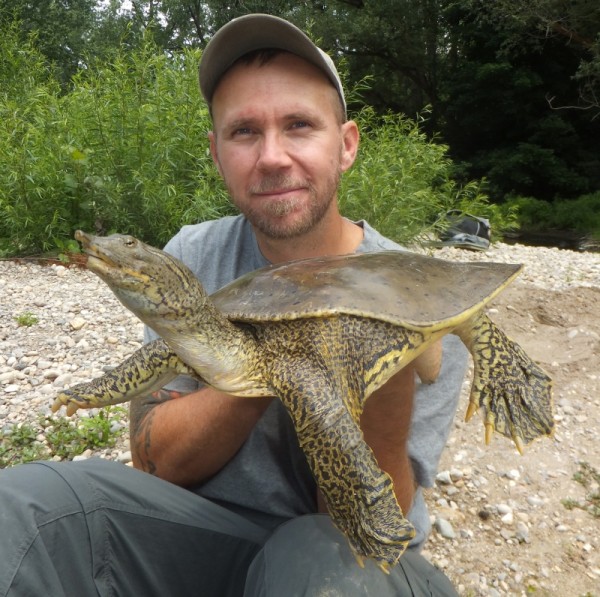
Last July, I wrote a WWF blog describing efforts underway to protect the unique spiny softshell turtle by the Upper Thames River Conservation Authority (UTRCA).
The flat, leathery shell, snorkel-like snout, and great speed of the spiny softshell make it unique among Canadian turtle species. Unfortunately, being unique provides very little protection from the considerable human-caused threats these turtles face along the Thames River, and throughout Ontario.
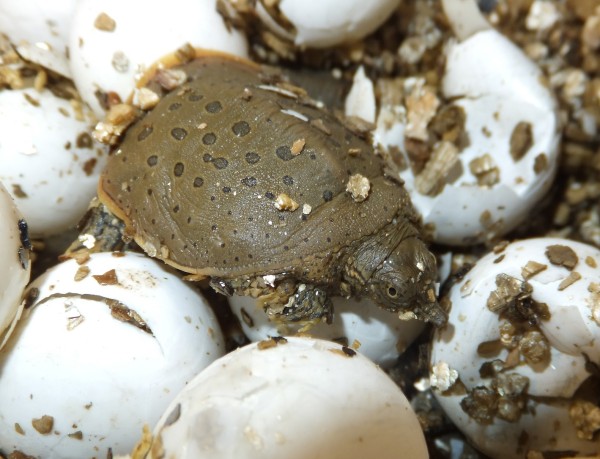
I am very happy to report that 2014 was an incredible field season for the spiny softshell. UTRCA’s Species at Risk Reptile Team protected a total of 175 nests of this threatened species. And more than 2,500 hatchling turtles from these nests were released into southern Ontario’s Thames River.
These are significant numbers for a species at risk like the spiny softshell. Without UTRCA’s assistance there would have been zero, or almost zero, young turtles hatching last year.
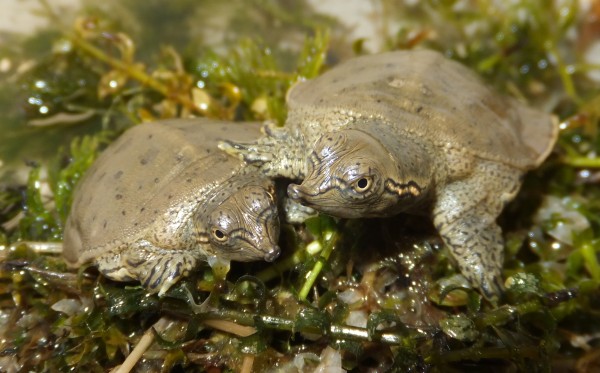
The Thames River, like most rivers in Southern Ontario, is under significant stress from outside factors. Turtle nest sites, in particular, are at risk of being lost or disturbed due to human recreational activities. ATV use, camping, and even fishing can pose a threat. That’s because the shy adult female softshell turtles are easily spooked during nesting, and their eggs are vulnerable to being crushed from foot traffic. Unfortunately, the problems do not stop there; nests are also lost to predators, poaching, flooding and even unfenced livestock.
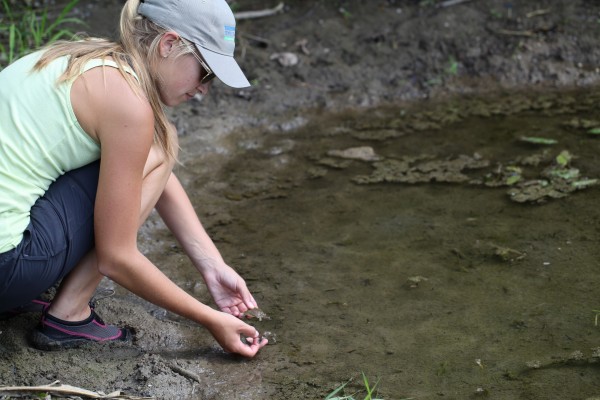
In Ontario, this unique species is found in only a handful of places, usually in numbers so low, it’s urgent we take action to improve habitat and increase the number of young entering the population. To help combat the obstacles this species faces in the wild, it’s critical that biologists protect the eggs and release as many hatchlings as possible.
We’re hoping the young turtles hatched this past season will beat the odds and begin to mate and lay eggs when they reach maturity in 12 to 18 years. Although not all will survive, our studies show that nest protection efforts are making a big difference – especially when combined with efforts to protect habitat and adults.
The local community has stepped up to assist in turtle recovery over the past few years. With the help of dedicated staff and volunteers, as well as financial support from WWF-Canada and other organizations, we have been able to further our reach, and protect larger numbers of animals and habitats. We are making an impact at the local level. But protecting eggs and young is only part of the solution. UTRCA is studying the population as a whole and seeking ways to improve water quality throughout the Thames watershed to protect habitat for all wildlife along the river.
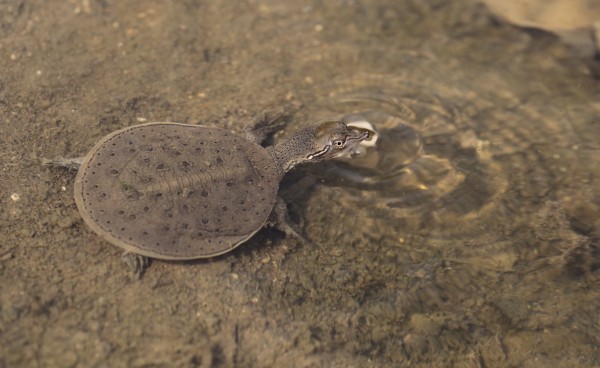
In the end, our efforts and successes are great news for the local population of Spiny Softshell Turtles. Although the road ahead is long, we remain positive and determined to ensure that softshell turtles continue to call southern Ontario home!
The Upper Thames River Conservation Authority gratefully acknowledges the support of WWF-Canada and the Beryl Ivey Fund on this project.
During Canada Water Week, show your support for our rivers, lakes and streams. Join the hundreds of Canadians working across the country to protect water health. You, too, can become a Water Hero by making a donation to our Loblaw Water Fund projects.
